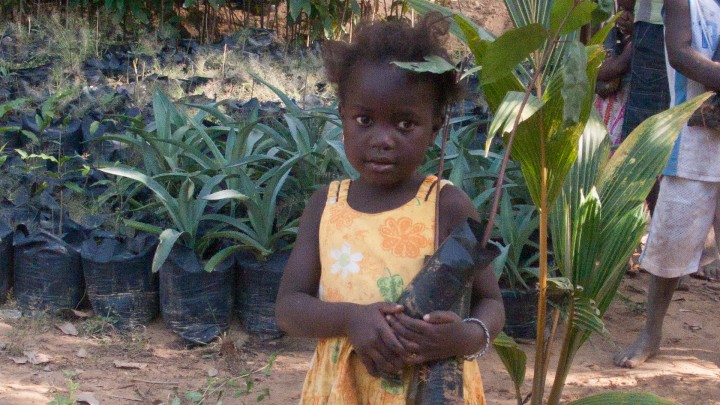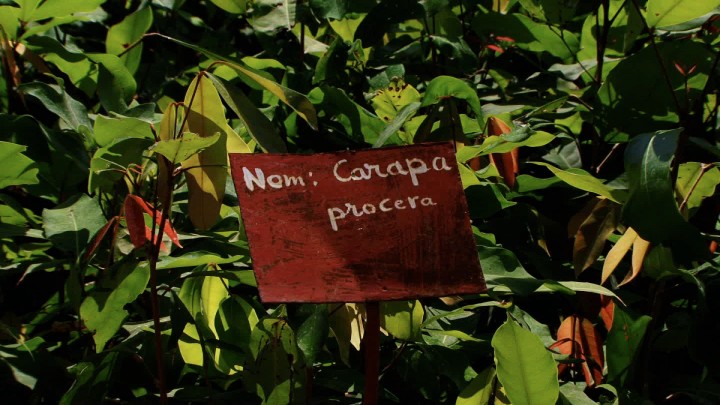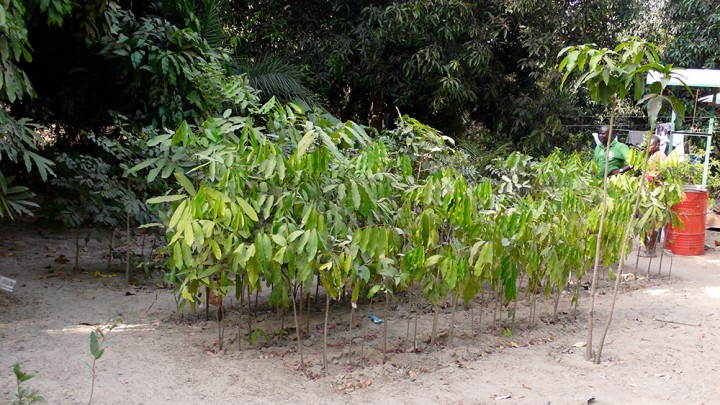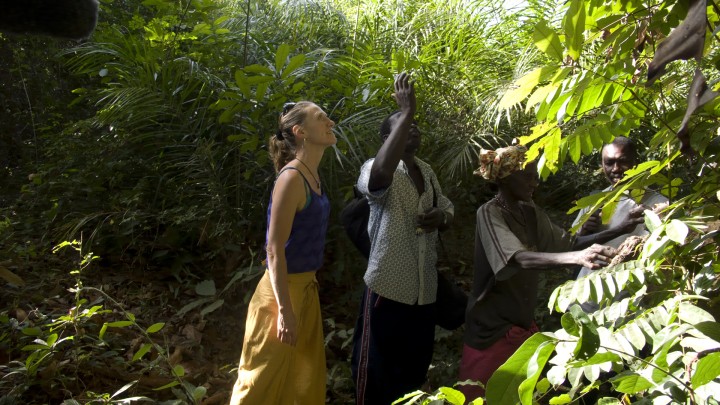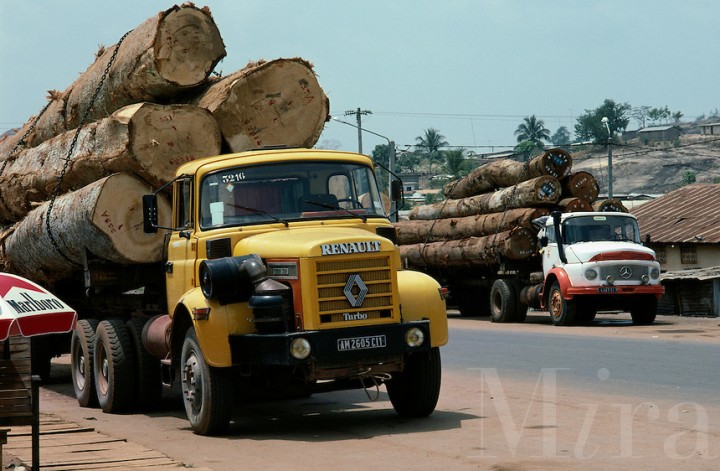School Tree Gardens
“Cooling and beautiful trees. Trees that hold back the sea, trees that clean the water, trees that brings down the rain, trees that cool down the planet with their lovely shade, trees that provide food even when the rains don’t come. And, oh yes, trees that will provide a harvest that cannot only be sold on the local market but on the international market as well.” MM
The Touloucouna’s massive root system retains soil and prevents erosion. Its huge shady branches keep the soil cool, prevent evaporation and draw down rain through transpiration
This tree is also the main food source for frugivores and granivores (i.e. wild rodents) who disperse the seeds. These animals were once an important source of protein for locals, but are now an endangered species.
But the Touloucouna tree is threatened by illegal logging
The Touloucouna can be protected by giving value to the living tree through the commercialisation of the oil as well as replanting seedlings.
We are working with our local partners on an extensive regeneration programme. The heart of this is a series of School Tree Gardens.
Because Touloucouna oil is rich in essential fatty acids including oleic, palmitic, stearic and linoleic acids, the cosmetic industry is beginning to use it for prevention of wrinkles and cellulite.
A strong network of like-minded people
These gardens will provide everything from seedlings for our regeneration programme to fruits and vegetables for school lunches. Children in the region rarely have access to expensive fruit and veg and a healthy portion at lunch will help them to concentrate and learn more in school!
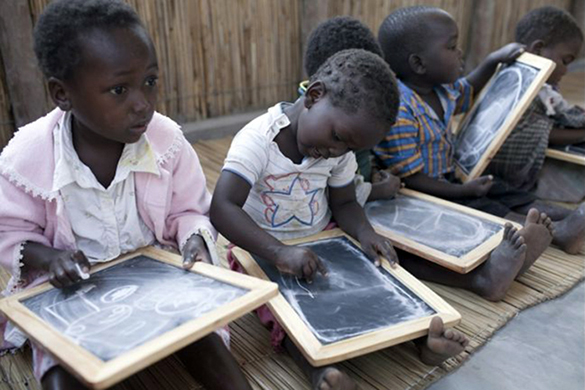
The tree gardens will be used in conjunction with the current school curriculum to teach children the relationships between biodiversity, economic stability and climate-resistant food sources.
Seeds and seedlings for agroforestry in the Sahel
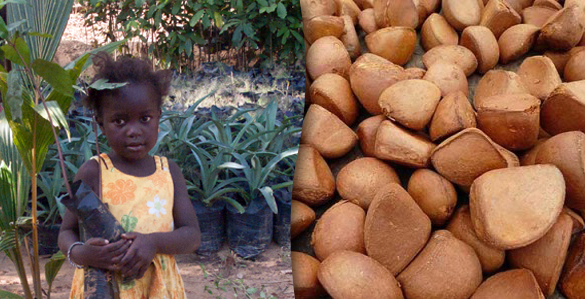
Our tree nurseries will also provide seeds and seedlings to our partners in the northern Sahel regions where arid conditions make tree growing difficult. They will be distributed among northern school tree gardens and other agroforestry projects.
Regenerating native forests promotes biodiversity and counters deforestation
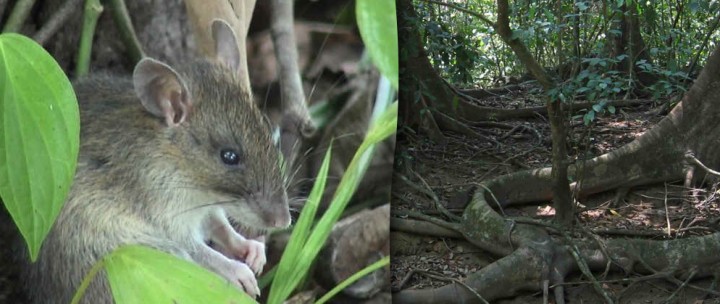
The trees grown from our seedlings will assure a constant supply of nuts in the future, for both oil production and local fauna who disperse the seeds. Carapa contributes to biodiversity in myriad ways.
The School Tree Nurseries emphasise the fundamental beginning of the supply chain. The oil that goes into cosmetics begins with the seed of the tree. This is why we see the School Tree Nurseries being the key link in building sustainability into supply chains at root level: growing trees from seed empowers villagers by putting them in control of their resources.
“We expect to see reduced levels of deforestation and increased tree planting as people begin to make the link between Forest, Food and Finance. The subsequent increase in biodiversity will improve resilience in the face of climate change; extreme weather conditions and cyclical climatic challenges like irregular annual rains, pests, flooding, drought and so on.” MM
*Oceanium: Established in 1984, it is a Senegalese association focusing on environmental protection of both onshore and offshore environments in Senegal and neighbouring countries. They are responsible for the largest successful mangrove plantation on the planet, reforesting over 150 million mangrove trees and other forest species in community-based forest management programmes. They are also very active in preventing and fighting bush fires.
